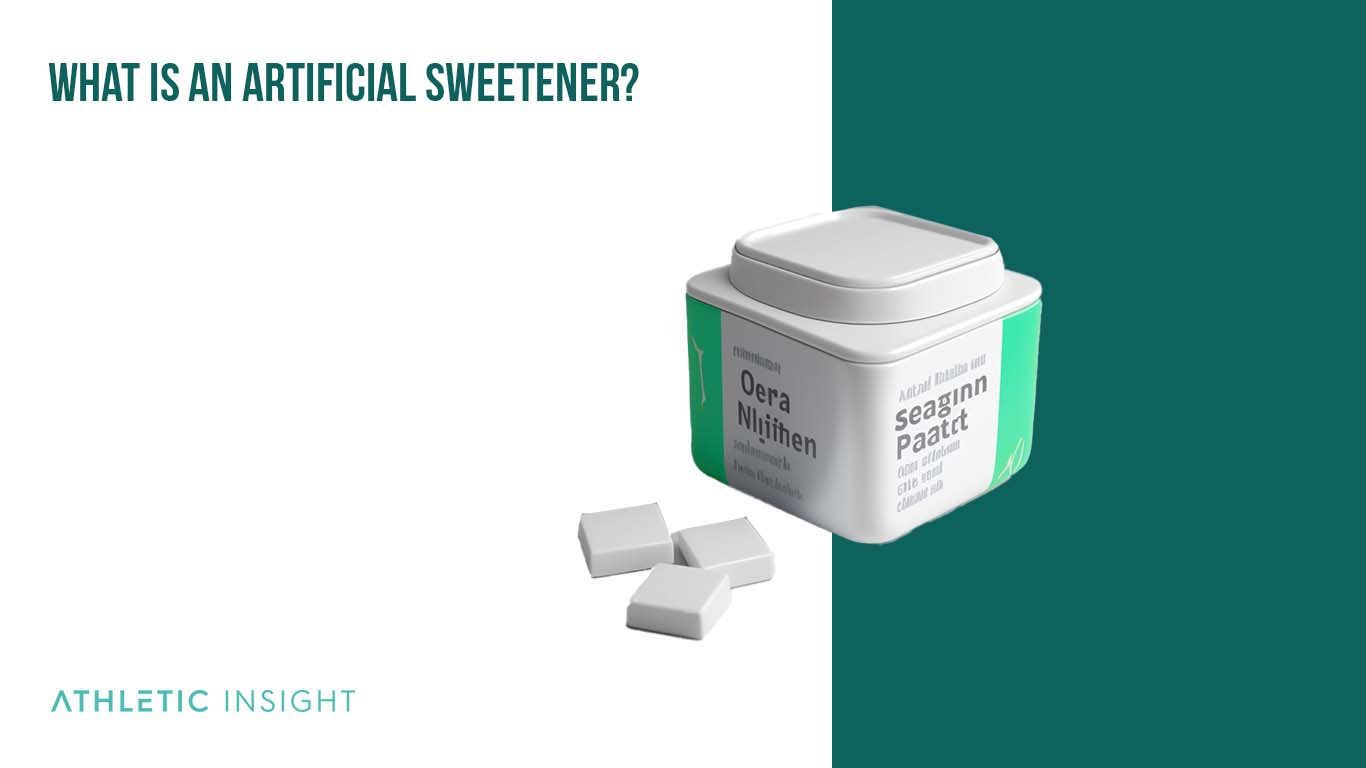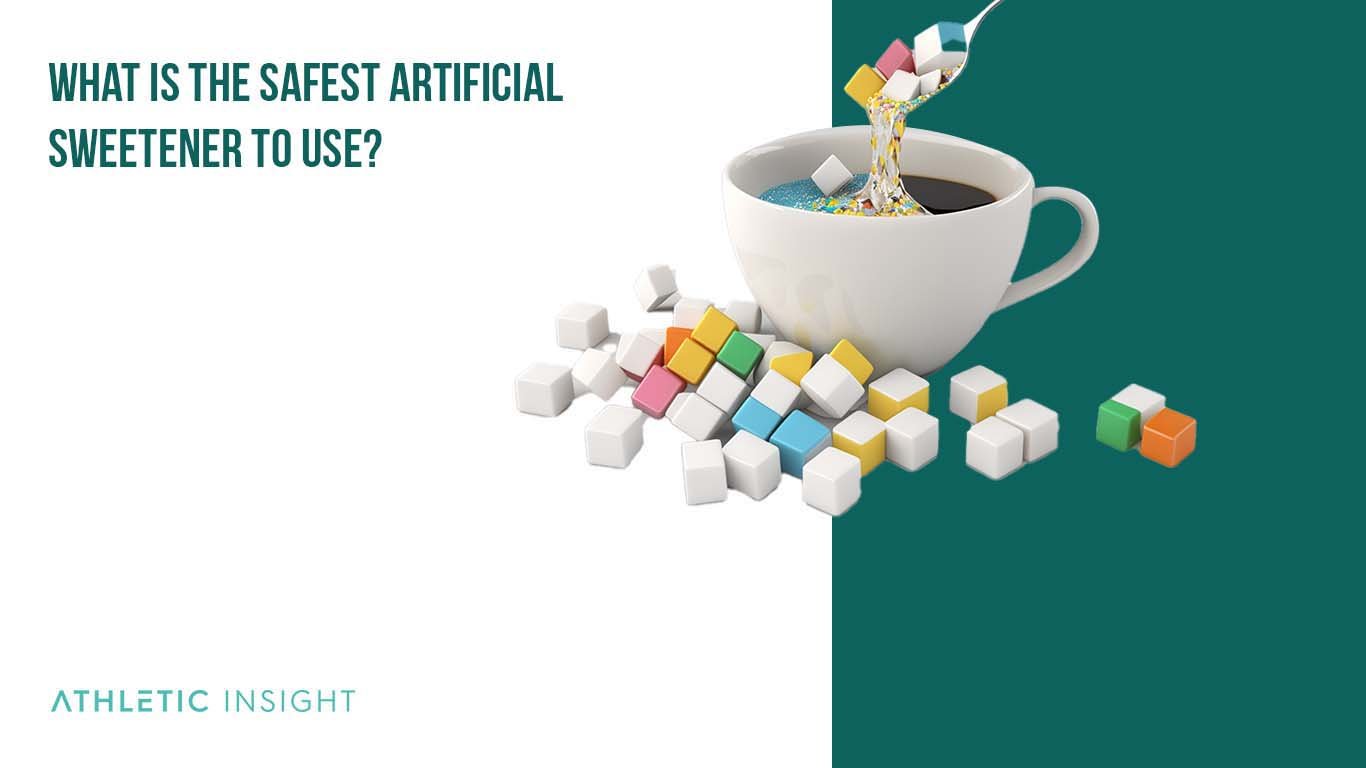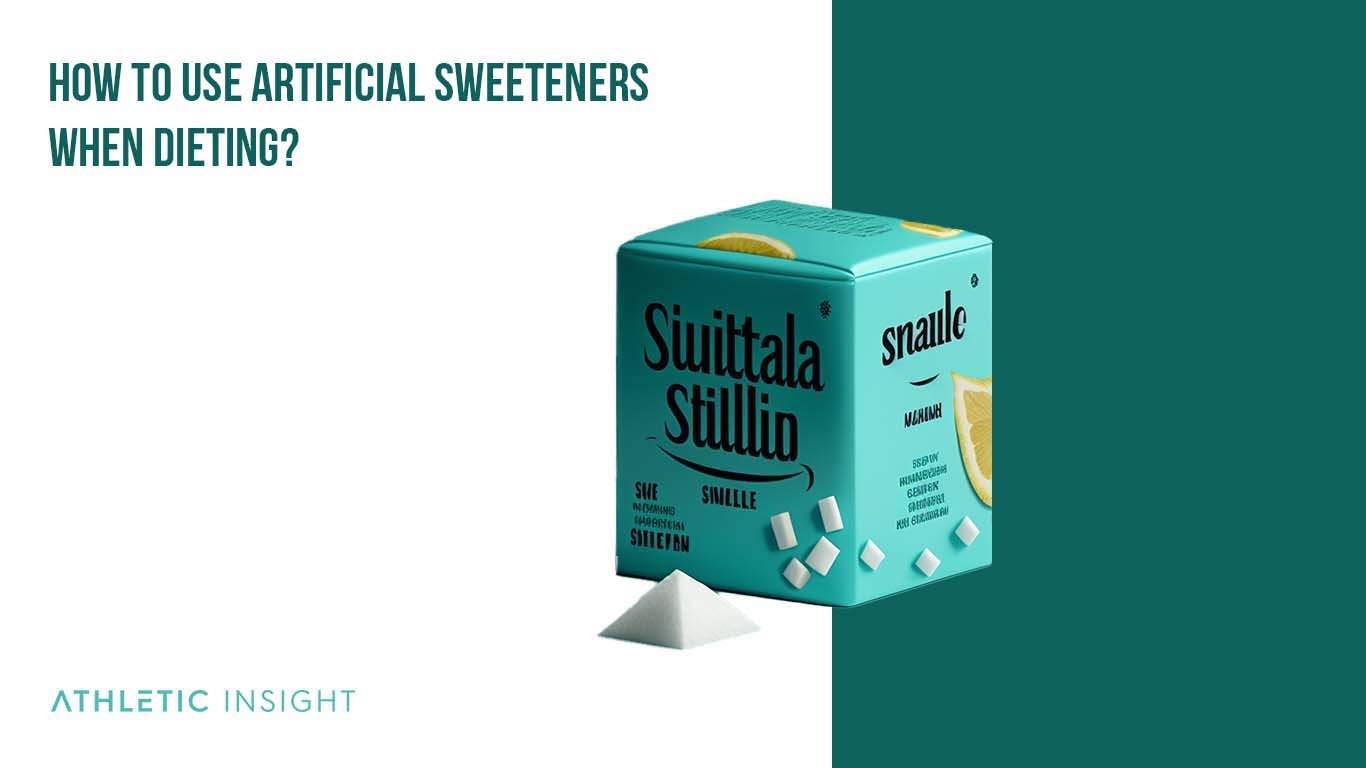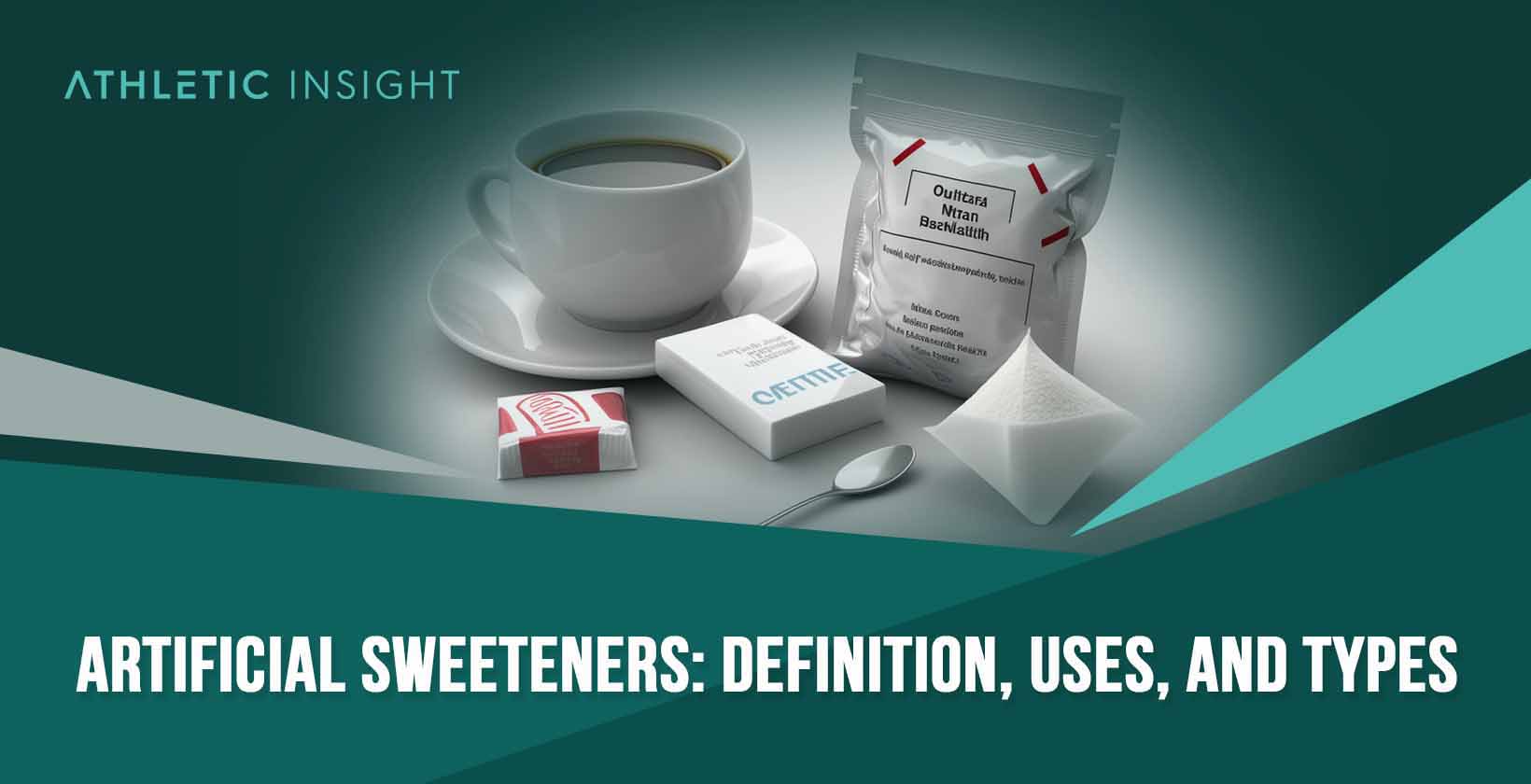Artificial sweeteners are a passionate debate amongst the health community. Some researchers claim sugar substitutes increase cancer risk and harm blood sugar levels and gut health. Others, including health authorities, claim the sugars are safe and can help individuals lose weight.
Artificial sweeteners are finding their way into more manufactured food products and on grocery store shelves. Research shows intake has increased by 54% among adults and 200% in children in the last few decades.
The Food and Drug Administration (FDA) currently approves several artificial sweeteners. The organization determines acceptable daily intake levels for each sweetener and types approved for use under these conditions.
Some common sweeteners include sucralose and aspartame. To make an informed decision tailored to individual needs and preferences, investigate the advantages and disadvantages of each type of artificial sweetener. For instance, those looking for a sweeter alternative should opt for sugar alcohols such as xylitol, while others prefer natural low-calorie alternatives like stevia.
What is an Artificial Sweetener?
Non-nutritive sweeteners (artificial or low-calorie sweeteners) are sugar substitutes that add sweetness to food and beverages. These products contain no calories or carbohydrates and are often used to replace table sugar (sucrose) and added sugars. Many processed foods contain artificial sweeteners.

Artificial sweeteners are a viable alternative to regular sugar as they offer the same sweetness but fewer calories. As such, they offer some health benefits when used in moderation.
The history of sugar-free options reveals an unexpected scientific discovery process. The first artificial sweetener is saccharin, a Latin word for sugar. A Johns Hopkins University researcher looking for new applications for coal tar derivatives discovered the sweetener.
Saccharin was a popular choice in canned goods and sodas by 1907 before banning by the United States Department of Agriculture as a possibly toxic substance in 1912. Sugar rationing necessitated using saccharin as a substitute in World War 1, leading to the ban reversal.
How does an Artificial Sweetener work?
Artificial sweeteners work by binding to the receptor molecules on the tongue. The attachment causes a change in how the taste buds perceive sweetness, resulting in a sweet-tasting drink or food.
The tongue surface has many taste buds, each containing receptors for detecting different flavors. The receptors encounter food molecules and signal the brain, allowing you to identify the taste.
Artificial sweetener molecules have a similar structure to sugar molecules to fit in the sweetness receptors. Substitute sweeteners have unique structures from ordinary sugar and how the body breaks down the latter into calories. This explains why sweeteners have a sweet taste without added calories.
What are the uses of Artificial Sweeteners?
Artificial sweeteners are popular in diet sodas and other zero-calorie beverages but are also common in many other products. Sugar substitutes are also available in highly processed foods, including baked goods, energy drinks, powdered beverages, candy, and dairy products.
An indicator of a product containing artificial sweeteners includes statements such as “sugar-free” or “low-calorie.” Further, the ingredient list always indicates the presence of the sweeteners.
Are Artificial Sweeteners important?
Yes, artificial sweeteners are important. Replacing added sugar with an artificial sweetener helps lower your risk of getting tooth cavities and decay. The substitutes also do not raise the level of sugar in the blood.
Children and adults with obesity or overweight issues can use sugar substitutes to help manage their weight for the short term due to the low or no calorie content. However, it’s not clear if sugar substitutes are helpful over the long term.
Health agencies agree sugar alternatives don’t cause life-threatening health issues. There’s no direct link between the substances and increased cancer risk. Some research on long-term use suggests a higher risk of heart disease, stroke, and death. Overall, it’s generally safe to take sweeteners in small amounts for a short time or sporadically.
What are the common Types of Artificial Sweeteners?
The FDA approves six main types of artificial sweeteners as approved food additives, depending on the research into each. Several studies into each type help identify possible toxic effects. However, all variants are sweeter than your regular table sugar (sucrose) but with no or few calories.
- Sucralose
- Aspartame
- Xylitol
- Saccharin
- Acesulfame K
1. Sucralose
Sucralose is a unique synthetic sweetener derived from sucrose. Chlorination alters sugar’s chemical structure in the lab, leading to a product 600 times sweeter than your conventional table sugar.
Your body doesn’t digest sucralose to produce energy. You get zero calories after adding to a diet. An artificial sweetener is an alternative to sugar to reduce calorie intake through a diet. Products that use sucralose include candy, table sweetener packets, breakfast and protein bars, gelatin, sodas, canned fruit, chewing gum, and frozen dairy desserts.
- Candies
- Table sweetener packets
- Breakfast and protein bars
- Gelatins
- Sodas
- Canned fruits
- Chewing gum
- Frozen dairy desserts
What are the benefits of Sucralose?
Sucralose comes with several benefits, including no calories, shelf-stability, safe, no tooth decay and no bitter aftertaste.
- Calorie-free and will not contribute to weight gain
- Shelf-stable and capable of withstanding high temperatures of up to 246 degrees Fahrenheit
- The FDA deems sucralose safe for consumption by diabetics, pregnant people, and children
- Lack of sugar does not contribute to tooth decay or cavities
- Does not contain a bitter aftertaste like many artificial sweeteners
What are disadvantages of Sucralose?
Sucralose comes with a few disadvantages, such as poor baking or cooking abilities, it typically gets mixed with high calorie bulking agents, it is too sweet by itself so manufacturers add other additives to it, can upset one’s gut microbiome, and requires some math when using it since it is so sweet.
- Manufacturers mix sucralose with bulking agents, such as dextrose, which contain sugars and calories
- Not ideal for baking and cooking, but decomposes at very high temperatures
- Pure sucralose is so sweet that manufacturers add other additives and fillers that negate your dieting goals
- Sucralose does not absorb moisture and is a poor sugar alternative that leads to dryness in baked items
- Can upset your gut microbe balance, leading to digestion problems, inflammation, and other concerns
- You need to make some calculations before using sucralose when baking or cooking because sucralose substitutes a large amount of sugar
2. Aspartame
Aspartame is a low-calorie sweetener derived from aspartic acid and phenylalanine. The derivative has a white powdery look and is about 200 times sweeter than sucrose. However, aspartame contains some calories.
Aspartame and weight loss are a hot debate because switching to it leads to successful loss for some people. Others do not lose weight, and some gain when using aspartame to sweeten their diets.
Some studies show consuming aspartame slows down the metabolism, leading to weight gain even after consuming fewer calories. A Yale study indicates slow metabolism is not because of the sweetener. Instead, combining other fats or carbohydrates with the non-sucrose sweetener leads to a significant metabolic rate drop.
Below are some products that use aspartame.
- Sodas and other drinks
- Puddings
- Condiments
- Dairy products
- Pharmaceutical preparations
- Chewing gum
- Popsicles
- Breakfast cereals
- In table sweeteners in combination with other products
What are the benefits of Aspartame?
Some of the benefits of using aspartame in your diet include zero glycemic index, high concentration of sweetness, no sugar or calories, FDA approved, no definitive correlation between cancer and aspartame.
- A glycemic index of zero
- A 200 times sweeter than table sugar means you don’t need as much to sweeten meals.
- Contains no sugar, which helps you avoid sugar-related health problems and diseases
- Classified as safe for consumption by the FDA
- Aspartame metabolization is the same for healthy adults and children
- Reports on a connection between aspartame and cancer are rumors
What are disadvantages of Aspartame?
Some disadvantages of aspartame includes headaches, dizziness, unpleasant aftertaste, can’t be heated, contains 4 calories per gram, and not everyone can consume it depending on individual health issues.
- Some people experience headaches, dizziness, and other side effects after taking aspartame
- Aspartame has an unpleasant aftertaste
- Doctors do not encourage the consumption of sweeteners for individuals with phenylketonuria (PKU)
- Aspartame loses its sweetness after heating and is unusable for cooked or baked foods
- Contains 4 calories per gram, like sucrose
3. Xylitol
Xylitol is a sugar alcohol. The sweetener has traits of alcohol and sugar molecules, which help stimulate the sweetness taste receptors on your tongue.
Xylitol is produced in a laboratory. However, the sugar alcohol comes from the birch tree bark and the xylan plant. The sweetener is available in small amounts in some vegetables and fruits, including pumpkin, cauliflower, strawberries, and plums.
Products that use xylitol include the following such as mouthwash, toothpaste, chocoloate, candy and syrups to name a few.
- Mouthwashes and toothpaste
- Granulated sugar substitutes
- Some vitamins and cough syrup
- Table syrups
- Chocolate
- Ice cream
- Sugar-free mints and gums
- Hard sucking candies
- Baked desserts
- Jellies and jams
- Nut butter
- Some nasal sprays and supplements
What are benefits of Xylitol?
Some benefits of adding xylitol to your diet include improved dental health, low-carb and low-sugar friendly, reduces ear and yeast infections, improves collagen production, increases bone development, and improves digestive health.
- Helps improve dental health by preventing cavities
- Usable while on a low-carb or low-sugar diet
- Helps reduce ear and yeast infections
- Improves the production of collagen, which helps counteract the effects of skin aging
- Helps increase bone material and volume
- Improves your digestive health by feeding the friendly gut bacteria
What are disadvantages of Xylitol?
Xylitol consumption does come with some disadvantages, such as digestion issues, bloating, diarrhea, blood glucose spikes, nausea and gas in your intenstines.
- Sugar alcohols, such as xylitol, are likely to cause digestion issues, including diarrhea, bloating, and constipation
- It can raise blood glucose levels even with a low glycemic index
- Consuming over 40 to 50 grams of xylitol daily can cause nausea, colic, increased bowel movements, and rumbling sounds as gas moves through your intestine
4. Saccharin
Saccharin is one of the oldest artificial sweeteners with a history going back over 100 years. The synthetic sweetener is derived from a lab process that oxidizes phthalic anhydride or o-toluene sulfonamide chemicals.
Saccharin is 200 to 700 times sweeter than table sugar. The sweetener comes in a white, odorless solid in its purest form. Some products that use saccharin include candy, beverages, and baked goods.
- Candy
- Beverages
- Baked goods
What are benefits of Saccharin?
Some benefits of saccharin are that it is a weight-loss aid, does not ferment in your mouth (no cavities), and diabetic friendly.
- Works as a weight-loss aid in your diet
- Saccharin does not ferment in the mouth, which helps prevent cavity growth
- Suitable for people with diabetes because the human body cannot metabolize the sweetener
What are disadvantages of Saccharin?
Some disadvantages of Saccharin include an unpleasant aftertaste, certain populations are prohibited from consuming (pregnant women, children and infants), and allergic reactions that cause headaches, diarrhea, breathing dificulties and skin problems.
- Has an unpleasant aftertaste, so manufacturers combine saccharin with other zero or low-calorie sweeteners
- Infants, children, and pregnant women are advised to avoid the sweetener
- Saccharin is a sulfonamide that can cause allergic reactions such as headaches, diarrhea, breathing difficulties, and skin problems
5. Acesulfame K
Acesulfame K (acesulfame potassium, ACE-K, or E950) is an approved FDA alternative sweetener over 200 times sweeter than table sugar. Alone, the sweetener is a white crystal powder with a bitter aftertaste. Manufacturers often blend Acesulfame K with other sweeteners, such as sucrose.
Manufacturers combine potassium and acetoacetic acid to make acesulfame K. The fake sugar offers trace amounts of potassium but not enough to reap the benefits. The sweetener contains zero calories, making ACE-K a good addition to your diet.
Below are some products that use Acesulfame K.
- Protein shakes
- Frozen desserts
- Candy
- Gum
- Soft drinks
- Drink mixes
- Baked goods
- Tabletop sweeteners
What are the benefits of Acesulfame K?
Some benefits of using Acesulfame K are that it contains zero calories helps diabetics limit their calorie and sugar intake, maintains a stable texture and sweetness when baked, low-carb or keto-friendly, and does not contribute to tooth decay.
- Contains zero calories
- Helps diabetics limit their calorie and sugar intake
- Maintains a stable texture and sweetness when used in baked goods
- Low-carb and keto diet-compliant
- Does not contribute to tooth decay
What are disadvantages of Acesultame K?
Some disadvantages of using Acesulfame K are gut microbiota changes, higher obesity and weight-gain risks, headaches, and increased cravings for sweets.
- Gut microbiota changes can lead to insulin resistance and a higher risk of type 2 diabetes.
- Higher obesity and weight gain risk
- Headaches
- Increased cravings for sweets
What are the other types of Artificial Sweeteners?
Other FDA-cleared artificial sweeteners include neotame, advantame, and stevia. These synthetic sweeteners also have a go-ahead from major health organizations, including the American Heart Association and the Center for Science in the Public Interest (CSPI).
- Neotame: A derivative of two amino acids and 7,000 to 13,000 times sweeter than ordinary sugar. Neotame is a safe option because you can only use microscopic amounts.
- Advantame: Formed from vanillin and aspartame, advantame can replace up to 40% of sugar without affecting taste.
- Stevia: Refined stevia products are about 100 to 300 times sweeter than sugar.
What is the safest Artificial Sweetener to use?
The FDA currently approves six artificial sweeteners as the safest on the market. These sweeteners are saccharin, aspartame, acesulfame potassium, sucralose, neotame, and advantame.
- Saccharin
- Aspartame
- Acesulfame potassium
- Sucralose
- Neotame
- Advantame

The FDA approves these food additives after extensively studying their safety. For instance, saccharin is the best-studied artificial sweetener since its discovery in the 1870s. However, the FDA banned saccharin in 1970 but changed its position in 2000 after several studies supported the sweetener is OK for consumption.
Many safety studies show that sucralose is safe as a general-purpose food sweetener. The substance is now available in various foods, including chewing gums and gelatins.
Over 113 animal and human studies indicate that neotame doesn’t affect the nervous, reproductive, and immune systems. However, it should be noted that approval is only used as a sweetener and flavor enhancer in foods other than poultry and meat.
Can you incorporate Artificial Sweeteners into the Keto diet?
Yes, artificial sweeteners can easily fit into your low-carb or ketogenic diet. A keto diet involves reducing the high-carb foods you consume in your meals, including desserts, processed snacks, and starches. The process is essential to achieve ketosis, which causes the body to break down fat stores to produce energy.
Ketosis also requires reducing sugar consumption in your diet, which makes it challenging to sweeten dressings, baked goods, sauces, and beverages. Fortunately, low-carb artificial sweeteners are good sugar alternatives in your ketogenic diet, these are sucralose and xylitol.
What is the harmful Artificial Sweetener?
Aspartame is a harmful artificial sweetener when consumed in high amounts, according to a 2022 NutriNet-Sante cohort study. The study evaluated the association between no- and low-calorie sweetener intake and cancer risk. The findings contradict what many global health associations consider healthy sweeteners.
However, supporters of artificial sweeteners point out several weaknesses in the study. First, the self-reporting subjects are like to underreport, misreport, or even offer biased data. Second, participants were not an accurate representation of the broader population.
What are the benefits of Artificial Sweeteners?
The FDA approves the use of six artificial sweeteners. Further, the American Dietetic Association states that sweeteners are suitable for the public, including those with diabetes, pregnant women, and children. Below are some significant benefits of artificial sweeteners.
- The ability to add sweetness to food without using actual table sugar
- A low or negligible amount of calories, which makes artificial sweetness when you want to control weight
- Fake sweeteners provide a bridge for anyone looking to change from consuming sugary foods and beverages to a healthy lifestyle.
- Artificial sweeteners do not affect blood sugar like sugar does, making artificial sweeteners critical for diabetes management.
- Some artificial sweeteners are from natural substances, such as sucralose
- You can add artificial sweeteners to just about anything
- Artificial sugar supports better oral health
- Multiple options to choose
- The sweeteners come in different size options
- Artificial sweeteners also mean less exposure to products containing herbicides or pesticides used to promote crop growth, such as sugarcane.
What are the side effects of Artificial Sweeteners?
Some studies claim artificial and low-calorie sweeteners are harmful and require more scrutiny. The FDA offers acceptable daily intake levels for sweeteners which can be seen on their website.
Excessive amounts (ranging from 20 to 50 grams daily) can lead to diarrhea, upset stomach, headaches, and potenitally worse side effects. Other common side effects of artificial sweeteners can be seen below.
- A potential link to various diseases and cancers
- Consuming the sweeteners means you are ingesting man-made chemicals a human body can’t support
- Artificial sweeteners lead to sugar cravings, which lead to overeating
- The sweeteners don’t offer volume or bulk
- The products leave a sour aftertaste
- An artificial sweetener will change the outcomes of your baking and cooking recipes
- Some sweeteners collect in the gastrointestinal tract, which leads to multiple uncomfortable symptoms
It is critical to be mindful of the potential dangers of artificial sweeteners to make a knowledgeable decision concerning their utilization. Alternatives such as natural low-calorie sweeteners, sugar alcohols, and stevia or monk fruit extracts are available for those who wish to reduce added sugars without sacrificing sweetness.
How to use Artificial Sweeteners when dieting?
The process of using artificial sweeteners when dieting requires finding the right artificial sweetener for your specific diet protocol needs. You can use sugar substitutes in cooked and baked items, but the result will not be identical to ordinary sugar. Remember to reduce the amount depending on the artificial sweetener type you’re using.

What kind of Artificial Sweeteners is good when dieting?
A good artificial sweetener when dieting is stevia. The sweetener contains fewer calories than sugar, which helps lower your intake. Stevia has no sugar and helps reduce the energy you consume without sacrificing sweetness.
Replacing regular sugar with stevia will also reduce the Glycemic Index (GI) of food, reducing the effect on blood sugar levels. Ordinary sugar has a GI of 65, while stevia contains nothing. Stevia is available in powdered, granulated, and liquid forms.
Do Artificial Sweeteners affect fat loss?
No, according to studies, artificial sweeteners do not affect fat loss. In fact, artificial sweeteners do not slow the metabolism or promote the storage of fat. Using a sugar-free alternative does not inhibit fat loss and can suppress appetite, indirectly contributing to fat loss.
Do Artificial Sweeteners cause weight gain?
No, artificial sweeteners will not cause weight gain directly. They don’t have calories which means weight gain can’t happen. However, concerns from animal research suggest there is a distant relationship between low-calorie sugar substitutes and weight gain.
For example, a study by G. L. Blackburn had participants replace normal sugar additives with artificial sweeteners and follow a proper weight-loss diet and exercise program. The group lost a significant amount of weight, as expected by the scientists.
However, the research doesn’t mean artificial sugar alternatives are better than water for weight loss. The study shows that products will not get in the way when you are in a caloric deficit.
Do Artificial Sweeteners cause weight loss?
Yes, artificial sweeteners can cause weight loss as long as they are used to reduce caloric intake. Energy restriction drives weight loss, and anything you do to restrict even more energy intake will result in further loss. However, losing weight faster depends on your diet and if you limit yourself to a proper meal plan. Eating without planning and then consuming artificial sweeteners is less likely to help.
Sweetened drinks and foods are sweet and have low calories, but they don’t offer the same fullness satisfaction as added sugar-based products. The body’s natural response to this impartial fulfillment is yearning for more via calories. This explains why research shows many people consuming artificial sweeteners eat more to compensate for the “saved” calories.
Do all Diet Types Approve of using Artificial Sweeteners?
No, not all diet types approve the use of artificial sweeteners. It all depends on the diet you follow. Consuming artificial sweeteners doesn’t cause weight gain in the short term. However, replacing sugar in your diet with artificial sweeteners helps reduce body weight.
High-calorie diets do not gain anything by adding sweeteners. It’s advisable to avoid artificial sweeteners if your diet type is to help you manage cravings and other health problems.
Are Artificial Sweeteners bad for you?
No, artificial sweeteners are not bad for you in moderation according to the FDA. However, consuming artificial sweeteners is not advisable if you have a bowel disease. The substitutes can flare up your symptoms.
People living with phenylketonuria or are allergic to sulfonamides should avoid foods and drinks containing aspartame. Children under two years should also avoid artificial sweetness because most research focuses on the effects on adults.
What type of Artificial Sweetener can you use in Diabetic Diet?
The types of artificial sweeteners you can use on a diabetic diet include sucralose, aspartame, saccharin, acesulfame K, stevia, and neotame.
- Sucralose
- Aspartame
- Saccharin
- Acesulfame K
- Stevia
- Neotame
The sugar substitutes are “free foods” that contain less than 20 calories and 5 grams of carbohydrates. These values do not count as calories or carbohydrates in the diabetes exchange.
However, read the labels because other ingredients mixed with artificial sweeteners can affect blood sugar levels, which will impact one’s diabetic diet. It’s also critical to consume within the FDA-recommended rates. Avoid sweeteners with sugar alcohols, such as xylitol, as they can increase your levels.
What is the difference between regular Sugar and Artificial Sweetener?
White, granulated, table, or regular sugar comes from refining sugarcane and sugar beets. The sugar has 111 calories per ounce, which is about two tablespoons. Added sugar in products helps increase flavor or extend shelf life.
Top sources of added sugar include flavored yogurts, soft drinks, cakes, cookies, and processed foods. Excess consumption of sugar in foods affects obesity and heart health.
The healthier alternative is an artificial sweetener. These substitutes come with little to no calories. Below is a rundown of when sugar is best depending on your health and fitness goals.
- When trying to build muscle
- To improve gut health and prevent digestive symptoms
- Pursuing a short-term weight loss program
- For long-term weight loss, you should watch your overall calorie intake carefully.
- You want to manage oral hygiene and prevent cavities
- Improve your mood and focus without crashing



